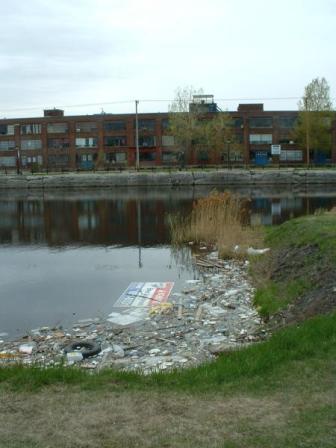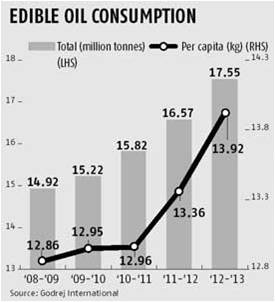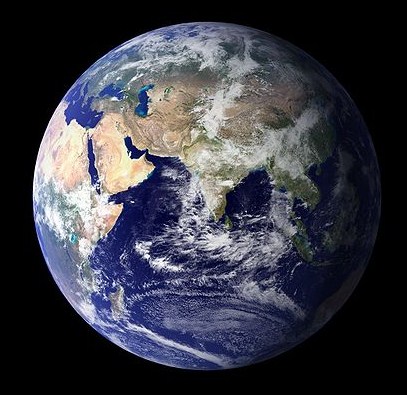Environmental Pollution Control – Water, Air and Land
“Earth provides enough to satisfy every man’s needs, but not every man’s greed.”
― Mahatma Gandhi
“This entire planet is our home. We are the only species that systematically destroy our own habitat.”- Marianne Williamson
“One person alone cannot save the planet’s biodiversity, but each individual’s effort to encourage nature’s wealth must not be underestimated.”- United Nations Environment Programme (UNEP)

Introduction
Pollution prevention is a major global concern because of the harmful effects of pollution on a person’s health and on the environment. Environmental pollution comes in various forms, such as: air pollution, water pollution, soil pollution, etc.
Everyone is a stakeholder as we are all inhabitants of this one and only mother earth. Each person can contribute something to advance environmental pollution mitigation measures. Environmental protection means caring for our resources and subsequently for ourselves and ensuring a sustainable future for generations to come will have a better environment.
“If we heal the earth, we heal ourselves.” – Wangari Maathai
You and I should therefore accept personal responsibility for the success of the environmental protection programs of our respective community by cooperating and actively participating in making the atmosphere pollution free. Help stop pollution today. Although on an individual basis, we can help combat pollution in our own immediate environment, efficient control can be best institutionalized through legislation. Thus, most countries have already addressed the issue by passing some form of pollution prevention measures.
Also Read: Phytoremediation- Solution to Contaminated Environment
Averting the onset of pollution in any area; i.e. be it on air, water or land, could be a start and the simplest preventive solution to the problem. This calls for a conscientious effort to adopt good practices or habits by the people, the passage and the proper implementation of appropriate government laws and strict compliance especially by potential industrial pollutants.
If there are no pollutants, there will be no pollution. And yet, this is easier said than done. Certain bad habits are entrenched and industrial development somehow carries with it the concomitant burden of pollution. The cost to business and its commercial ramifications make this rather simple preventive approach quite complicated and more difficult to implement.
Everyone can help by self education and by adopting good and healthy practices. It is also important that we help raise awareness about the significance of environmental issues, their dire consequences and what can be done.
Also Read:Bioremediation- The New Age Cleansing Technology of the Environment
Every action or inaction of any person in regard to her or his surroundings has an effect- be it good, neutral or bad- on the environment. Nature already provides for our needs. Whatever we do to it gets back to us. If we are friends of the earth, it will also be friendly to us. By becoming aware and doing the right action, we choose to be part of the solution. What comes to mind now to serve as reminders include the following:
- Stop smoking or at least follow the “No Smoking” sign.
- Use unleaded gasoline in your cars.
- Keep your car properly maintained to keep it in good running condition to avoid smoke emissions.
- Share a ride or engage in car pooling.
- Instead of using your cars, choose to walk or ride a bicycle whenever possible. With this eco-friendly practice, you will also be healthier and happier by staying fit.
- Never use open fires to dispose of wastes.
- Adopt the 3Rs of solid waste management: reduce, reuse and recycle. Inorganic materials such as metals, glass and plastic; also organic materials like paper, can be reclaimed and recycled. This takes into account that the proven solution to the problem of proper waste management (especially in third world countries) is proper disposal (in waste bins for collection and not in the street where it could fall into drains), waste segregation and collection, and recycling.
- Start composting brown leaves in your yard and green scraps from your kitchen. It will reduce waste while improving your yard and garden soils.
- Reconnect with nature. Live green by using green power supplied abundantly and freely by wind and the sun. Hang your laundry to dry to minimize use of gas or electricity from your dryers. Enjoy fresh air from open windows to lessen the use of air conditioning system.
- Patronize local foods and goods. In this manner, transporting goods and foods prepared with GMOs which uses fuel from conventional energy sources will be minimized.
- Use eco-friendly or biodegradable materials instead of plastic which are made up of highly toxic substances injurious to your health.
- Create your green space. Value your garden. Plant more trees and put indoor plants in your homes. They clean the air, provide oxygen and beautify your surroundings. Thus, care for them and by protecting them, especially the big trees around and in the forest, you protect yourself and your family, too.
- Have a proper waste disposal system especially for toxic wastes
- Take very good care of your pets and their wastes.
- Never throw, run or drain or dispose into the water, air, or land any substance in solid, liquid or gaseous form that shall cause pollution.
- Do not cause loud noises and unwanted sounds to avoid noise pollution.
- Do not litter in public places. Anti-litter campaigns can educate the populace.
- Industries should use fuel with lower sulphur content.
- Industries should monitor their air emissions regularly and take measures to ensure compliance with the prescribed emission standards.
- Industries should strictly follow applicable government regulations on pollution control.
- Organic waste should be dumped in places far from residential areas.
- Say a big “NO” to GMOs or genetically modified organisms. Genetically engineered crops are not only bad for the environment since they require massive amount of fungicides, pesticides, and herbicides; but GMO altered foods are also health risks and negatively impact farmers’ livelihood.
Conclusion
Breathing is life. We know that we will survive without food for several weeks and without water for few days, but without oxygen, we will die in a matter of minutes. The oxygen, the air we breathe sustains us. So, let us make today and everyday a good day for everyone. Allow the earth to have more clean air. Help control pollution.
Earth eventually had an atmosphere incompatible with life. Nevertheless, life on earth took care of itself. In the thinking of the human being a hundred years is a long time. A hundred years ago we didn’t have cars, airplanes, computers or vaccines. It was a whole different world, but to the earth, a hundred years is nothing. A million years is nothing. This planet lives and breathes on a much vaster scale. We can’t imagine its slow and powerful rhythms, and we haven’t got the humility to try. We’ve been residents here for the blink of an eye. If we are gone tomorrow, the earth will not miss us.
We must help fight Global Warming by doing the following steps:
Also Read:
Importance of National Ambient Air Quality Standards
Author
 Mr. Laxmi Prasad Boda is a B.com (Hons) third year student in the Indian Institute of Management and Commerce (IIMC), Hyderabad, India. He can be contacted at laxmiprasad330[at]gmail[dot]com.
Mr. Laxmi Prasad Boda is a B.com (Hons) third year student in the Indian Institute of Management and Commerce (IIMC), Hyderabad, India. He can be contacted at laxmiprasad330[at]gmail[dot]com.
Do you have a flair for writing? Interested in environmental issues? Why don’t you submit an article for the GreenCleanGuide 2013 contest? For contest rules, please visit this link.
Read more articles on Sustainable living from here.
Why AAP Government’s Odd-Even Car Formula is Good for the Environment




weldone
Acha comment kiya h
Go green to save the mother earth
Good sir
Plant more tree
Clean india green india donot tough the garbadage on road or river and not burn
no cutting of trees
go green
KEEP OUR ENVIRONMENT CLEAN AND FOLLOW SWACHH BHARATH
we should save our environment
Too leeter
An exhaustive essay enlightening the public as to how best ,we the inhabitants of this home ,the planet we can take care ,prevent,prohibit contaminating our air,water,and soil and how prudently we can do ourselve ,not awaiting anybody’s assistance except guidance. Congrats!
i have read article which inspired to those who are learned of environment. but those who are illiterate person. they must be aware about environment.
GOOOOOOOOO GREEN
GOOOOOOOOO GREEN
go ………….green
As we’ve read let us save ourself and at the same time we are saving earth.
Yes environmental pollution is biggest problem we are facing now. Pollution mainly caused byFfactories and automobiles. By following simple and easy tips we can minimise the pollutants in the environment.for example Using public transportation, Carpooling techniques.
encouraging essay!!!!!!!!! go green
save your planet
Hmmm right Education abOut pollution control is most imp. Thing to reduce pollution
I’ve read others comment but i can confidently say that they are just commenting to show their feelings but none of them follows that actually.
Can’t we inject the gene of Mycoplasma into other organisms and make them able to respire without oxygen??
Thank you sir…nice work..it was rally helpful for my research.